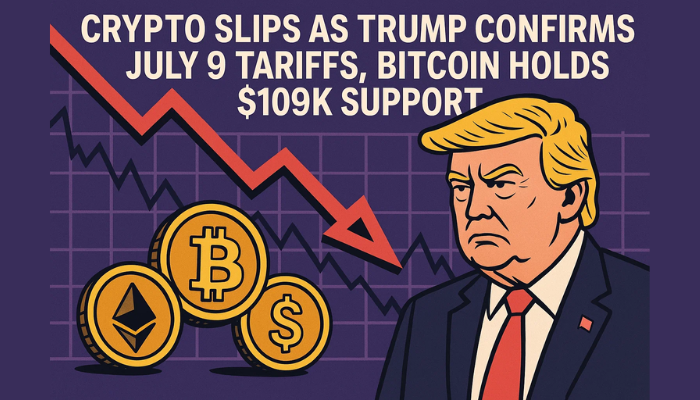Connecticut Outlaws Government-Owned Crypto Holdings as Global Bitcoin Interest Grows
Connecticut has moved to legally prohibit the state from holding or using cryptocurrencies, a response to growing controversy

Quick overview
- Connecticut has enacted a law prohibiting state and municipal agencies from purchasing or holding cryptocurrencies, making it the first U.S. state to implement such a ban.
- The legislation reflects concerns over cryptocurrency's volatility, regulatory uncertainty, and potential risks to taxpayers.
- While Connecticut adopts a cautious approach, global central banks are increasingly considering Bitcoin as part of their reserves for diversification.
- This contrast raises questions for brokers about whether public institutions should embrace crypto or maintain conservative financial practices.
Connecticut has moved to legally prohibit the state from holding or using cryptocurrencies, a response to growing controversy around digital asset use by public bodies.

The new law bans any municipal or state agency, state university, or public retirement fund from purchasing, holding, or employing crypto. This makes Connecticut the first U.S. state to enact a blanket ban on government-owned crypto.
The legislation emerged amid growing debate over cryptocurrency’s role in public finance. Proponents argue that crypto could diversify reserves, generate yield, and modernize financial operations. In contrast, critics point to wild price swings, custody risks, and regulatory uncertainty, warning these could expose taxpayers if governments get involved. Connecticut’s decision sides with caution. Lawmakers were concerned about volatility, lack of solid oversight, and insufficient insurance protections.
While Connecticut tightens its stance, interest from global central banks is building momentum. A growing number of them are reportedly considering Bitcoin as part of their reserves. Although currently limited, these developments reflect a broader trend toward diversification in public finance. Central bank leaders seem open to adding Bitcoin, driven not just by profit potential but also by fears of fiat devaluation, competitive pressures, and a quest for greater monetary independence.
This global shift stands in sharp contrast to Connecticut’s refusal. For taxpayers in the state, it provides clarity as public funds stay clear of crypto. Meanwhile, internationally, the Bitcoin conversation is evolving. Emerging economies are turning to crypto reserves for protection against currency risk, while developed countries debate the wisdom of diversification.
This moment poses a fundamental question for brokers working with institutional clients. Should public institutions and national governments include crypto in their treasuries, or adhere strictly to conservative financial principles? Connecticut’s law sets a precedent of caution, while international developments signal growing acceptance.
The intersection of conservative policy and global experimentation presents a compelling backdrop for client conversations. Some clients may find comfort in Connecticut’s risk-averse stance. Others may see opportunity in countries experimenting with crypto reserves. Understanding both ends of this spectrum can help brokers guide clients through decisions on digital asset exposure.
- Check out our free forex signals
- Follow the top economic events on FX Leaders economic calendar
- Trade better, discover more Forex Trading Strategies
- Open a FREE Trading Account


